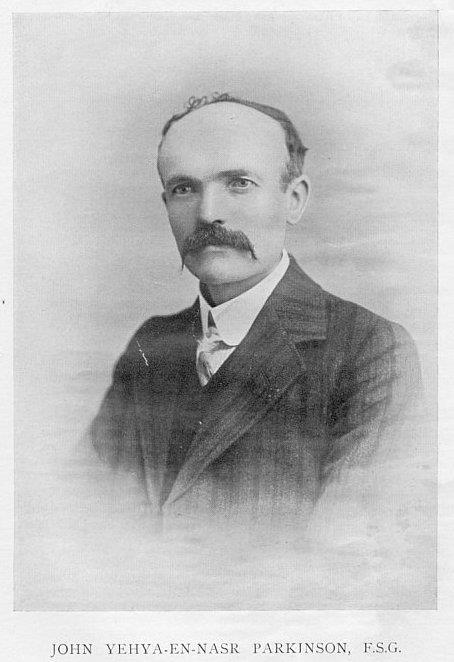John Parkinson, Scottish Muslim poet, essayist and critic, was born in Kilwinning of Irish descent. Having lost both parents whilst still a baby, he lived his entire life in the home of his grandparents. When they died, he supported himself from the age of sixteen as a wool spinner in the nearby Busby Spinning Company, now the site of Bridgend Motors. A voracious reader, he taught himself astronomy, mathematics, science, geography and philosophy.
Converting to Islam around 1900 and discovering a talent for poetry, he adopted the name Yehya-en-Nasr. Although relatively isolated here in Scotland, Parkinson maintained contact with the Liverpool Muslim Institute between 1901 and 1908 which helped to establish his literary reputation by publishing his early work, after which he developed connections with literary and learned Muslim circles in British India and elsewhere in the UK.
As well as his column in the local newspaper, writing under the name of ‘Ingomar’, Parkinson published several books, including Essays on Islamic Philosophy, and his collection of poems, Lays of Love and War, which deal with romance and Jihad. He had a two-year sojourn in Burma as a deputy editor of a Rangoon newspaper in 1908-10, but ill-health forced him to return to Scotland, where he died in December 1918 after a short bout of pneumonia. Those who took care of his burial and effects chose not to mention his association with the British Islamic Movement and he was buried in Kilwinning Cemetery in a grave with no memorial stone.
While he achieved some fame within UK and international Muslim literary circles, Parkinson has been largely forgotten due to having no family to remember him. Recently, there’s been a small revival of interest in his work among some historians. Brent D Singleton in California recently republished a number of Parkinson’s poems in an anthology by Muslim converts of the late Victorian and Edwardian periods, The Convert’s Passion (2009), and a number of them have also been set to music in Muslim Songs of the British Isles (2005).
To read more on John Parkinson, you can read this piece submitted to us by Kilwinning Heritage: HERE.
